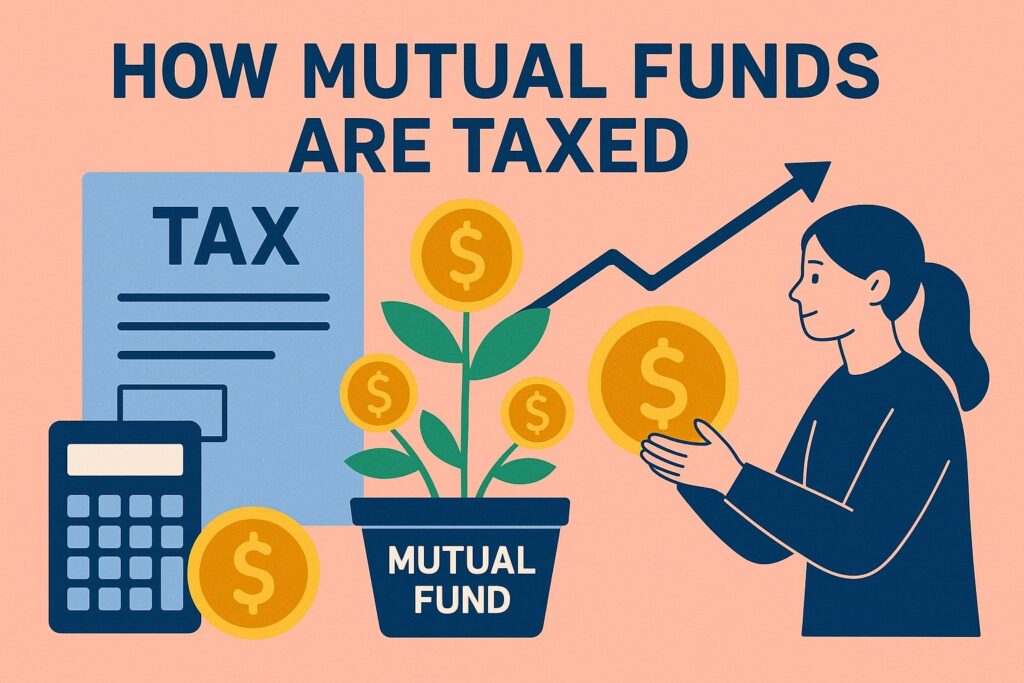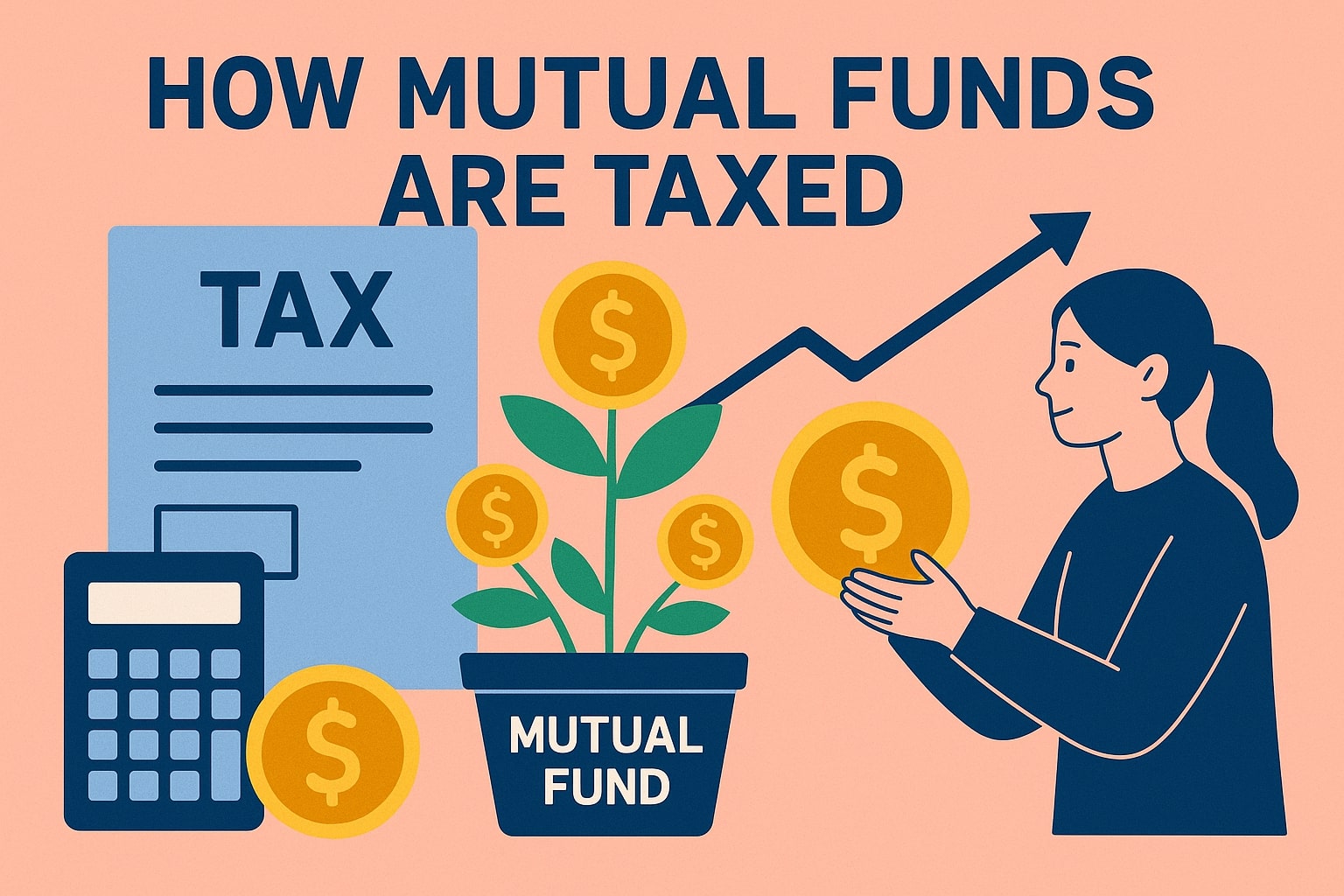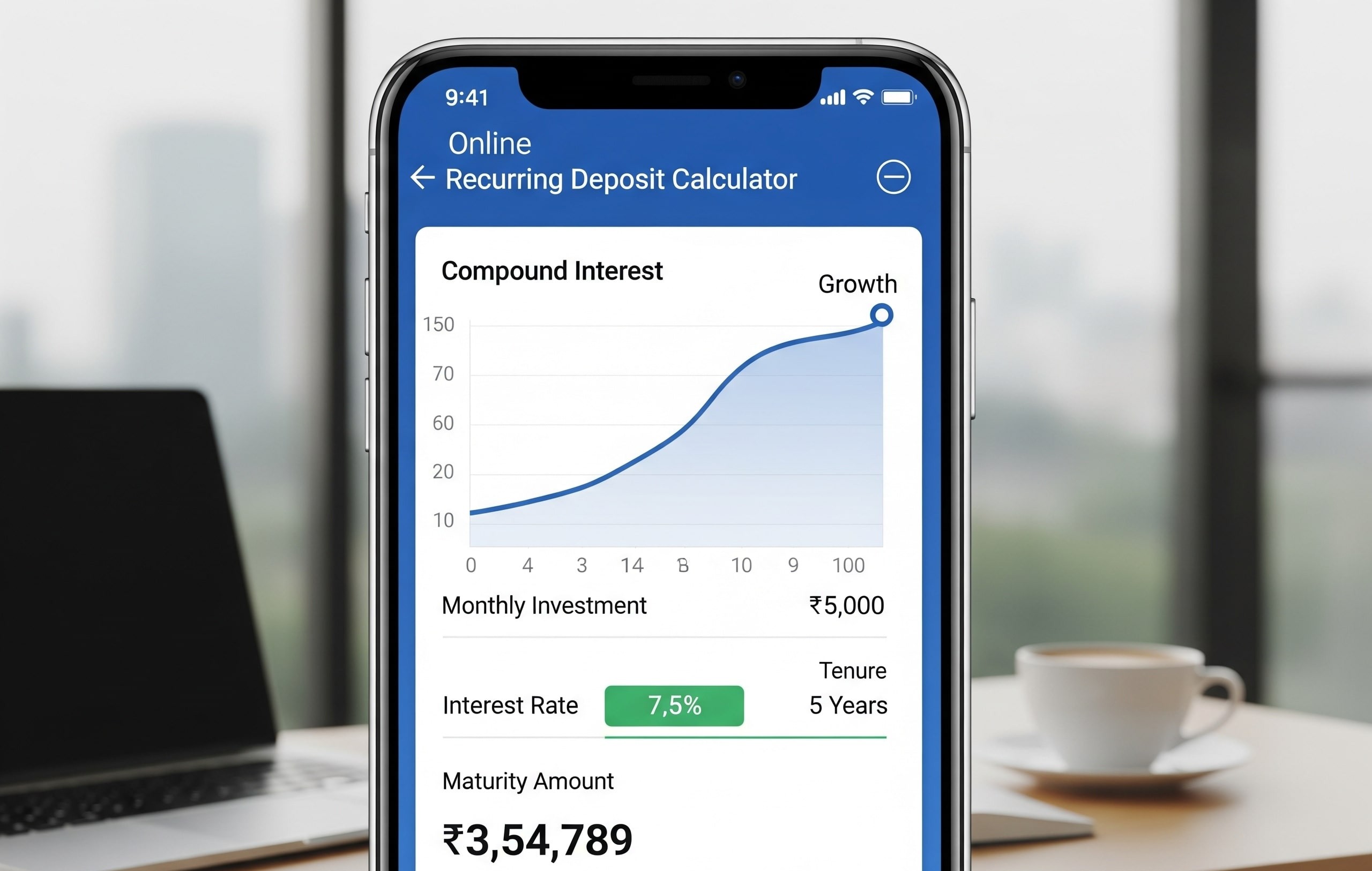
Are you considering mutual funds to benefit from great returns? Don’t forget the impact of tax on your mutual fund account. Because taxes directly affect the returns. Equity and debt funds follow different tax rules, and short-term and long-term capital gains are taxed separately. Dividend income also comes with tax implications. As an investor, you must know mutual fund taxation as it helps to minimize liabilities and maximize profit. So, let’s get started.
Understanding Taxation in Mutual Funds
Taxation of mutual funds [MFs] refers to the tax obligations linked to investing with these financial instruments. Capital gains arising from the transfer of sale units are classified as
- Short-term
- Long-term
It is based on the holding period.
Gains from units held for less than three years fall under short-term capital gains and are taxed at the investor’s applicable Income Tax Rate. If held for more than 3 years, it will be a Long-Term Capital Gain and taxed accordingly.
Factors Determining Tax on Mutual Funds
There are a number of factors that determine how much tax on mutual funds you owe on your investments. Understanding these can be helpful in better financial planning.
- Type of Fund
Mutual Funds are also taxed based on the type of mutual funds, which can be equity, debt, or hybrid funds.
- Dividends
Dividends are when a MFs house distributes its profits among shareholders. These distributions have tax implications.
- Capital Gains
The profit you make when selling your mutual fund units at a higher rate than when you bought them is called capital gain on mutual fund.
- Holding Period
The length of time that you hold your investment will impact the tax rate. In India, lower tax rates apply for longer holding periods, making long-term investments more tax-efficient.
How Mutual Fund Dividends Are Taxed
The Union Budget 2020 introduced changes to mutual fund taxation on dividends. Now, dividends, which an investor receives as to their investment in mutual funds, would be added to their taxable income and would be taxed as per their income tax slab.
Earlier, investors did not have to pay tax on dividends, as mutual fund companies deducted a Dividend Distribution Tax (DDT) before making payments. However, under the new system, the tax burden has fallen on investors, cutting overall returns.
How Capital Gains in Mutual Funds are Taxed
Tax on capital gain on mutual fund is based on the nature of the fund and the capital gains holding period. If the units of a MFs are sold, the gains are classified as short-term and long-term depending on the holding duration:
| Fund Type | Short-Term Capital Gains | Long-Term Capital Gains |
| Equity Funds | Less than 12 months | More than 12 months |
| Debt Funds | Always Considered short-term | Always Considered short-term |
| Hybrid Equity-Oriented Funds | Less than 12 months | More than 12 months |
| Hybrid Debt-Oriented Funds | Always Considered short-term | Always Considered short-term |
Short-term versus long-term capital gains both affect how returns are taxed differently. Understanding these tax rules helps investors plan their investments wisely.
Also Read: How to File Income Tax Returns for NRI | How To File Income Tax Return
How Capital Gains on Equity Funds Are Taxed
Equity funds must invest over 65% of their total assets in company shares. Tax on mutual funds related to capital gains from these funds depends on the holding period.
Equity fund units that are sold before completing one year result in short-term capital gains tax, which is charged at a flat rate of 15%, regardless of the income tax slab of the investor.
When units are sold after being held for more than one year, long-term capital gains (LTCG) apply. You can earn tax-free gains up to ₹1 lakh in a financial year, and if the gains are in excess of ₹1 lakh, then the excess gain is taxed at the rate of 10% without any indexation benefits.
How Capital Gains on Debt Funds are Taxed
Debt funds invest over 65% of their portfolio in debt instruments , and equity exposure does not go beyond 35%. A significant amendment was issued on Apr 1, 2023. Indexation benefits are no longer available for debt funds. So, all gains from the debt fund are considered short-term capital gains irrespective of the holding period.
In simple terms, the gains you earn from the sale of debt fund units will be added to your total taxable income and taxed as per the relevant income tax slab applicable to you. Earlier, long-term capital gains from debt funds attracted a lower rate of 20% with indexation, thereby reducing the tax burden. However, this advantage is no longer available, and hence, as compared to before, debt fund taxation has become less attractive.
How Capital Gains on Hybrid Funds are Taxed
Your hybrid or balanced funds will be taxed based on the equity allocation. A hybrid fund is taxed like an equity fund if it has more than 65% of its portfolio in equities. Else, it is taxed as a debt fund.
Therefore, it becomes essential to verify the hybrid fund’s equity exposure before investing. Neglecting this could lead to unforeseen tax consequences when redeeming your units. The table below briefly summarizes how hybrid funds are taxed on capital gains:
| Fund Type | Short-Term Capital Gains | Long-term Capital Gains |
| Equity FundsHybrid Equity-Oriented Funds | 15% + cess + surcharge | Any gains above ₹1 lakh taxed at 10% + cess + surcharge |
| Debt FundsHybrid Debt-Oriented Funds | Taxed as per the investor’s income slab | Taxed as per the investor’s income slab |
Summing Up
Holding onto your mutual fund units for a longer period lets you enjoy the Mutual fund tax benefit. Tax rates on long-term capital gains are lower than those on short-term capital gains, letting you get the most out of your returns. You can build wealth by properly planning the investment strategy and holding periods, as well as taking into account the tax implications.
Also Read: What Are Hybrid Mutual Funds? | Mutual Fund Lock In Period
FAQs
1. How should I declare my mutual fund investments in my income tax return?
Report all mutual fund investments, gains, or losses in your ITR. Include details like fund name, purchase and sale dates, and prices. Use the Capital Gains Statement from the fund house for reference.
2. What are the benefits of long-term investing in equity mutual funds?
Long-term investment in equity MFs has the potential to yield higher returns besides getting the benefit of favourable tax treatment. So, it is a more efficient strategy for wealth accumulation.
3. How can I optimize my mutual fund returns through tax planning?
Structure your portfolio tax-efficiently by understanding fund taxation, holding periods, and gains. Stay invested long-term, diversify funds, and explore tax-saving options like ELSS.
4. Are wealth taxes applicable to mutual fund investments?
Mutual funds and other financial assets are exempt from wealth tax under the Wealth Tax Act, so investors are not required to pay wealth tax on them.
Hello there, my name is Phulutu, and I am the Head Content Developer at Nivesh Karlo. I have 13 years of experience working in fintech companies. I have worked as a freelance writer. I love writing about personal finance, investments, mutual funds, and stocks. All the articles I write are based on thorough research and analysis. However, it is highly recommended to note that neither Nivesh Karlo nor I recommend any investment without proper research, and to read all the documents carefully.






Leave a Reply